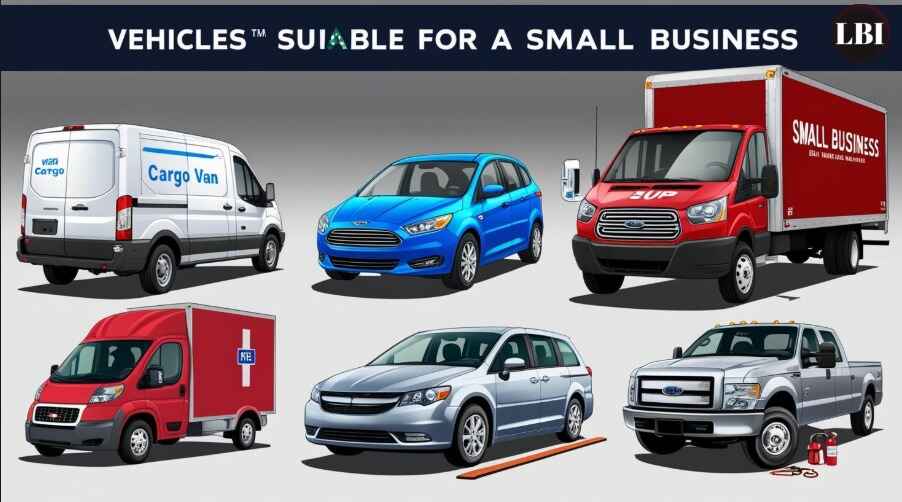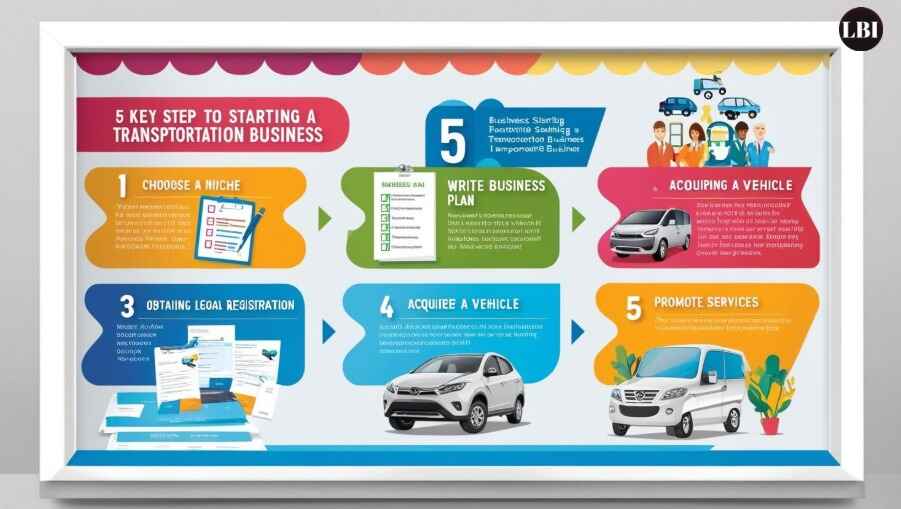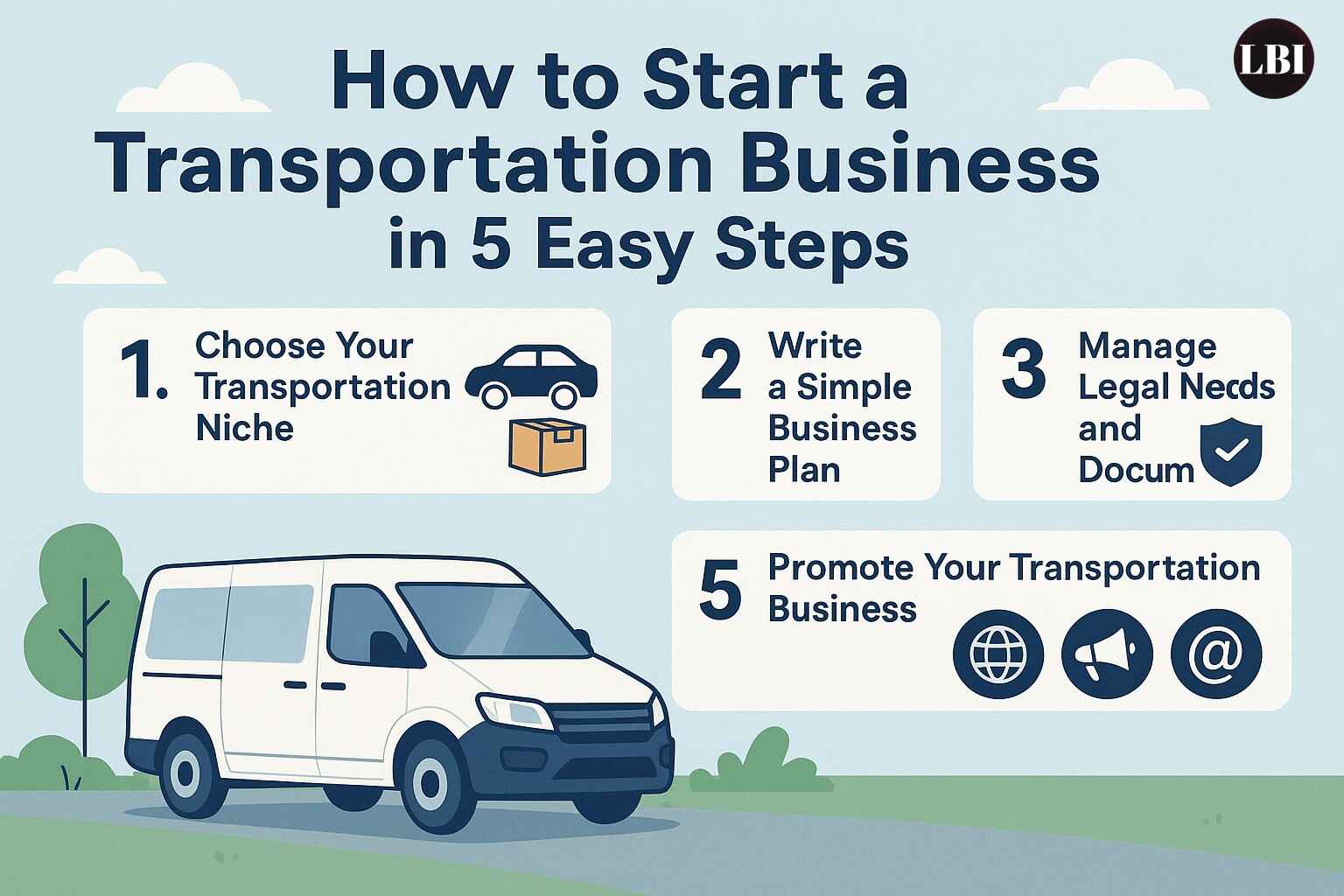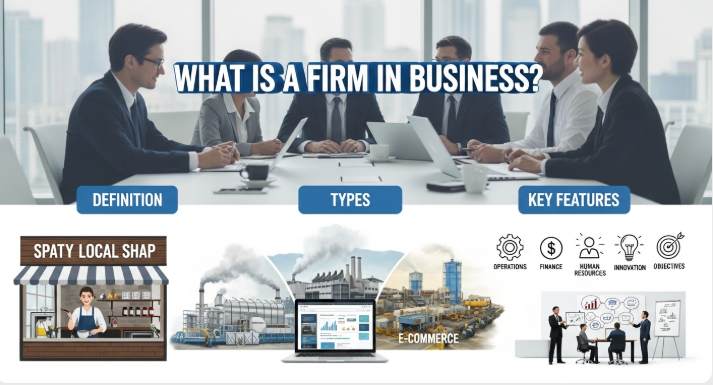Do you enjoy driving or organising transport services? Then you’ve mostly asked yourself how to start a transportation business. The good thing is that starting your own transport company doesn’t have to be challenging. You must follow the proper steps to stay organised and offer excellent service.
Whether you want to transport passengers or offer moving services, this guide will show you how to start a transportation business in five easy steps.
Step 1: Choose Your Transportation Niche
Before anything else, decide what kind of transportation service you want to provide. This is the first significant step in How to Start a Transportation Business because it shapes the rest of your planning.
Here are popular transportation niches:
🚗 Passenger Transportation
- Taxi or Ride-Share Service – Like Uber or Lyft.
- Shuttle Services – For airports, hotels, or events.
- School Transportation – Transport kids safely from home to school or school to home.
- Senior or Medical Transport – Help elderly clients or patients get to appointments.
📦 Goods & Delivery Services
- Trucking – Haul products over long distances.
- Courier Services – Deliver packages or documents locally.
- Moving Services – Help families and businesses relocate.
🚚 Specialised Transport
- Auto Transport – Move vehicles between cities or states.
- Luxury Transport – Limo or executive car services.
- Freight Brokerage – Match shippers with carriers (low startup cost).
Pro Tip: Choose a niche that matches your interests, local demand, and budget.
Step 2: Write a Simple Business Plan
 A good business needs a clear direction. Your business plan doesn’t have to be fancy; it just has to be clear enough to guide your decisions and attract investors or lenders if necessary.
A good business needs a clear direction. Your business plan doesn’t have to be fancy; it just has to be clear enough to guide your decisions and attract investors or lenders if necessary.
Your Business Plan Should Include:
- Business Name & Structure – Choose a name and decide whether you’ll operate as a sole proprietor, LLC, or corporation.
- Target Market – Who are your ideal customers? Families, seniors, companies, or travellers?
- Startup Costs – List what you’ll need to start (vehicle, insurance, permits, website, fuel).
- Services & Pricing – Describe what you’ll offer and how much you’ll charge.
- Marketing Strategy – How will people find your business?
- Financial Goals: Set clear, simple milestones (e.g., “Get 10 clients in the first 3 months”).
Why This Matters:
This step makes your vision real. It also helps when applying for loans or attracting partners. A simple one-page plan is better than none at all.
Step 3: Manage Legal Needs and Documents
To start a transportation business legally, you must register and comply with your state or nation’s regulations. This is a must when learning how to start a transportation business properly.
What You’ll Likely Need:
✅ Register Your Business
- Check that your business name is available.
- Register with your local or state government.
- Choose your legal structure (LLC, sole proprietorship, etc.).
✅ Get an EIN
This is your Employer Identification Number. You’ll need it to open a business bank account and file taxes.
✅ Apply for Licenses & Permits
These may include:
- Business license
- Commercial driver’s license (CDL)
- Vehicle registration for commercial use
- Local and state transportation permits
- DOT number (if operating across state lines in the U.S.)
✅ Purchase Business Insurance
Shield yourself from accidents, damages, or lawsuits. Types to consider:
- Auto Insurance (commercial)
- General Liability
- Cargo Insurance (if hauling goods)
- Workers’ Compensation (if you hire employees)
Tip: Get advice from a local small business office or transport attorney so that you are doing it legally
Step 4: Obtain the Right Vehicle and Equipment
 Your vehicle is the backbone of your business. A van, car, bus, or truck must be reliable, clean, and safe, whether it’s a sedan, SUV, box truck, etc.
Your vehicle is the backbone of your business. A van, car, bus, or truck must be reliable, clean, and safe, whether it’s a sedan, SUV, box truck, etc.
Pick the Right Vehicle:
- Type – Van, sedan, SUV, bus, box truck, etc.
- Capacity – Consider how many people or cargo it needs to carry.
- Fuel Efficiency – Lower fuel costs mean more profit.
- Condition – New vehicles cost more but have fewer problems; used ones are cheaper but may need maintenance.
Should You Buy or Lease?
- Buy – You own it; it’s an asset. More upfront cost.
- Lease – Lower monthly payments; suitable for newer models. But you don’t own the vehicle.
Add Equipment:
Depending on your services, you may need:
- GPS or fleet tracking
- Dashcams
- Branding decals
- Lift ramps or wheelchair access
- Safety gear (fire extinguisher, first aid kit)
Step 5: Promote Your Transportation Business
You’ve got everything set up; now you need customers. Marketing is the final but most crucial step in establishing a transportation business. Without customers, you never have a business.
5 Ways to Market Your New Business:
1. Build a Simple Website
Make a basic website with:
- Your services
- Your contact info
- Online booking or quote requests
- Reviews or testimonials
- Clear calls to action like “Book Now” or “Call Today”
Use your focus keyword naturally, such as “Looking for how to start a transportation business? We’ve done it and can help you move today!”
2. Use Social Media
Create profiles on:
- Google Business Profile
- TikTok (especially for delivery/moving service videos)
Share updates, promos, behind-the-scenes, and happy customers.
3. Join Local Listings
Sign up for:
- Google Maps
- Yelp
- Yellow Pages
- Local business directories
These improve your online visibility fast.
4. Offer Discounts and Deals
Promotions can bring in your first clients. Try:
- First-time customer discounts
- Referral bonuses
- Group or event packages
5. Partner With Local Businesses
Contact hotels, real estate agents, clinics, or event planners. Offer them a commission for every referral.
Final Thoughts
 You know how to start a transportation business and are ready to go. It doesn’t look that safe at first, but by these five easy steps, you’ll be well on your way to having a profitable, reliable business.
You know how to start a transportation business and are ready to go. It doesn’t look that safe at first, but by these five easy steps, you’ll be well on your way to having a profitable, reliable business.
Let’s Recap:
- Choose your niche
- Write a simple business plan
- Get registered and legal
- Buy or lease the right vehicle
- Promote your service
Starting a transportation company is among the best ways to earn money while helping others. Whether you take individuals to appointments or ship packages, your service matters.
Frequently Asked Questions
1. What is the cost of establishing a transport company?
It varies by the type of business. A small transport or ride-share business might be $5,000–$15,000. A trucking business or medical transport business would be $30,000 or more. Everyday expenses are vehicle, licenses, insurance, fuel, and advertising.
2. Do I need a special license to operate a transportation business?
Yes. If you haul cargo or passengers for hire. You usually require a commercial driver’s license (CDL) and other operating permits based on where you are and what kind of service you provide. Call your transportation agency.
3. Can I operate a transportation business from my residence?
Yes! Most home-based transportation businesses get underway at home. You can manage bookings, calls, and finances from home. You only need a parking area and telephone or computer access.
4. What vehicle is best for a transportation business?
It just depends on your niche. A hybrid or fuel-efficient sedan is best for a taxi or ride-share business. A box truck or cargo van is best for deliveries or moving. Get a solid vehicle suitable for your business.
5. Is the transportation business profitable?
Yes, it can be profitable with good planning. There will always be a demand for transportation, whether individuals need to be taken somewhere or companies need to transport products. You must manage your costs and offer excellent customer service.
6. Do I need a business plan?
Yes. A business plan can assist you in making decisions and be useful when borrowing money or securing partners. It doesn’t have to be lengthy; it simply must be practical and readable.






